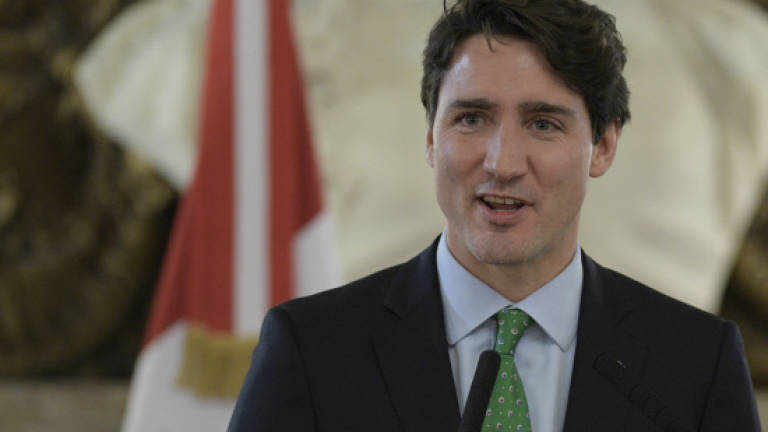Canada pressed to make clean environment a constitutional right

MONTREAL: A pioneering environmentalist this week called on Canada to make clean environments a constitutional right – an idea hatched decades ago and widely adopted but with mixed success around the world.
Canadian academic, science broadcaster and environmentalist David Suzuki in an interview with AFP said these protections must be enshrined in the Charter of Rights to prevent their degradation at the hands of skeptics who periodically come to power.
He pointed to former Tory prime minister Stephen Harper, who during a decade in office (2006-2015) "began to dismantle a lot of our environmental laws," and to the US President-elect Donald Trump who has called global warming a "hoax."
"We've now seen a monumental earthquake kind of change in the United States with the election of Donald Trump," said Suzuki, who turns 80 in March.
"In one election we could see the overturning of decades of environmental legislation that worked."
The idea of clean air, potable water and healthy food free from heavy metals, pesticides, and other pollutants as a human right emerged in the mid-1970s.
The collapse of fascist, colonial and communist regimes led to an unprecedented wave of new constitutions – more than half of the world's constitutions were written during this period.
This, combined with awareness of environmental degradation and the inadequacy of state responses, lead to more than 80 nations enacting some form of constitutional protection for the environment.
Yet ecological sustainability remains elusive.
Suzuki lamented having to fight over and over the same battles of the last 35 years to prevent oil drilling in sensitive areas, or the construction of hydroelectric dams requiring extensive flooding, or supertanker traffic along Canada's pristine Pacific coast.
"We thought we won 30, 35 years ago," he said. "We can't keep doing this, we have to change the way we have a relationship to the world."
Canada, he said, needs hard rules not subject to political oscillations. "We need to enshrine these rights in our Charter of Rights and Freedoms," he said.
Hottest year on record
Constitutional change does not come easy in Canada.
The constitution was patriated from colonial masters in Britain in 1982 with support of nine of Canada's 10 provinces.
Quebec, then under separatist leadership, refused to sign the document. Attempts to officially bring the French-speaking province under Canada's wing provoked infighting that threatened to break up the nation.
Failing a constitutional amendment, Suzuki called for activists to redouble their efforts in the face of growing threats to past achievements.
"You've got to fight like mad," he said. "You've got to be eco-warriors."
To Americans musing about moving to Canada, he offered a stern message: "I'm not interested in rats deserting a sinking ship."
Rather, "now is the time for you to work your ass off to make sure that (the next four years) are going to be as good for the environment as possible, and work toward the next election," he said.
Business and political leaders meeting in Marrakesh on Wednesday urged Trump not to withdraw from the climate-rescue Paris Agreement.
The Paris pact sets the goal of limiting average global warming to 2° Celsius over pre-Industrial Revolution levels, by cutting greenhouse gases from burning fossil fuels. On Monday the UN said average temperatures were already up 1.2° Celsius.
Countries, including the United States, have pledged to curb emissions under the deal by moving to renewable energy sources.
But Trump has vowed to boost oil, gas and coal production.
Suzuki praised Canadian Prime Minister Justin Trudeau for championing the Paris accord, but questioned Ottawa's paradoxical support for the construction of new pipelines to move Canadian oil to tidewater to reach new overseas markets.
"Why are we even talking about pipelines?" he asked.
"If we're serious about the Paris agreement, we have to get off the fossil fuels very, very rapidly. And in order to recover the cost of building a pipeline, you have to use it for 30, 35 years." — AFP